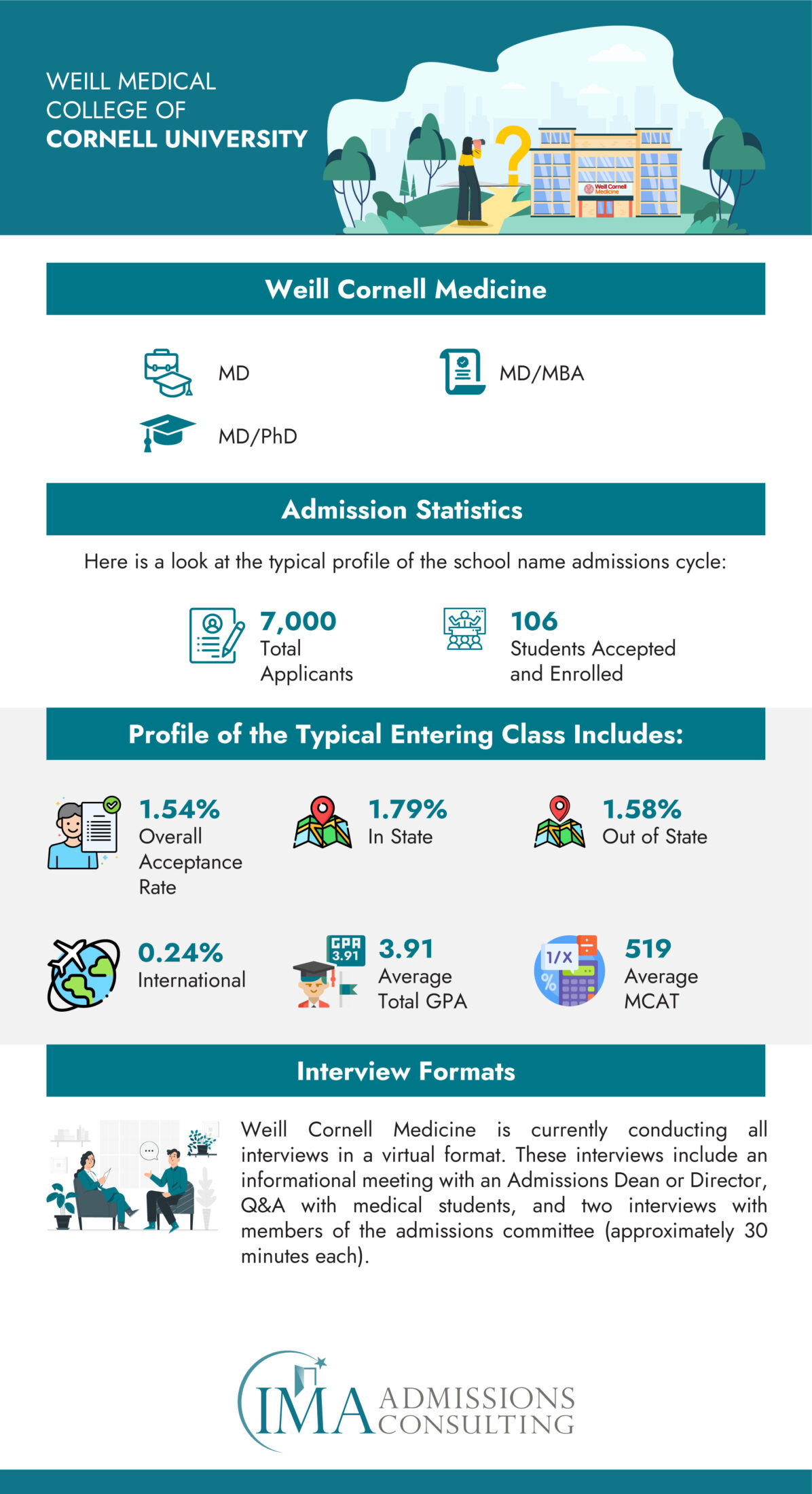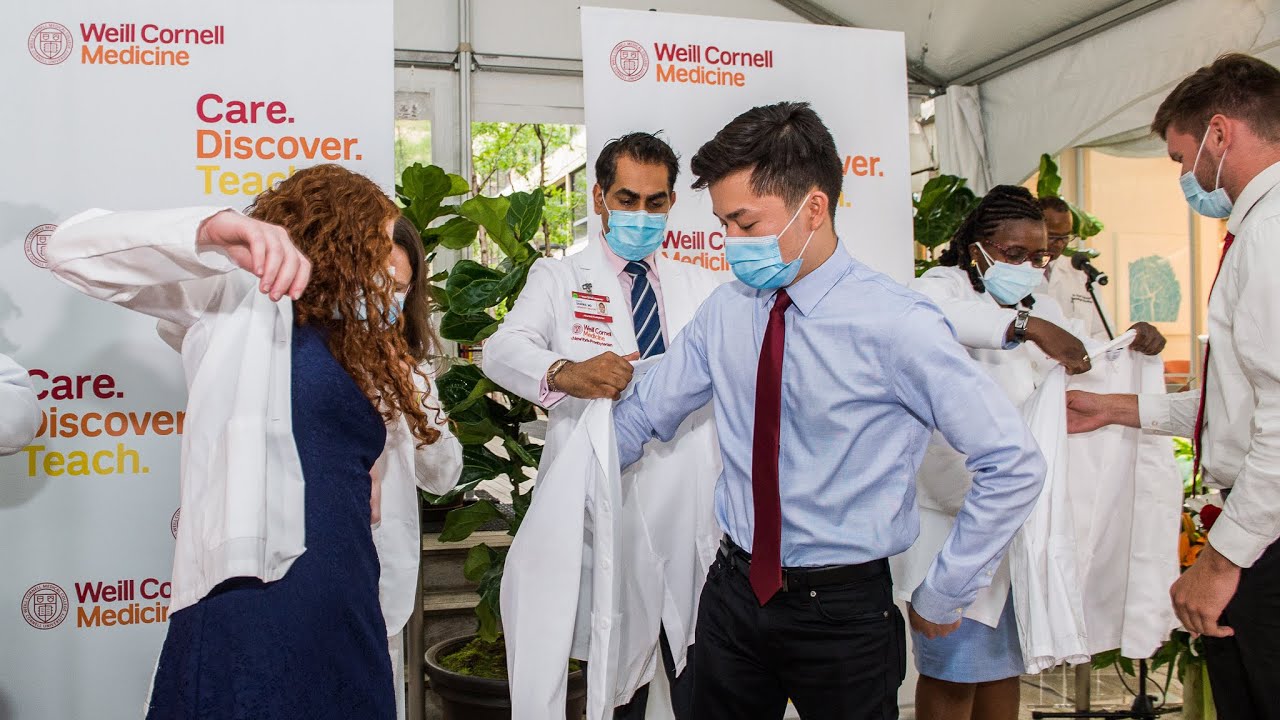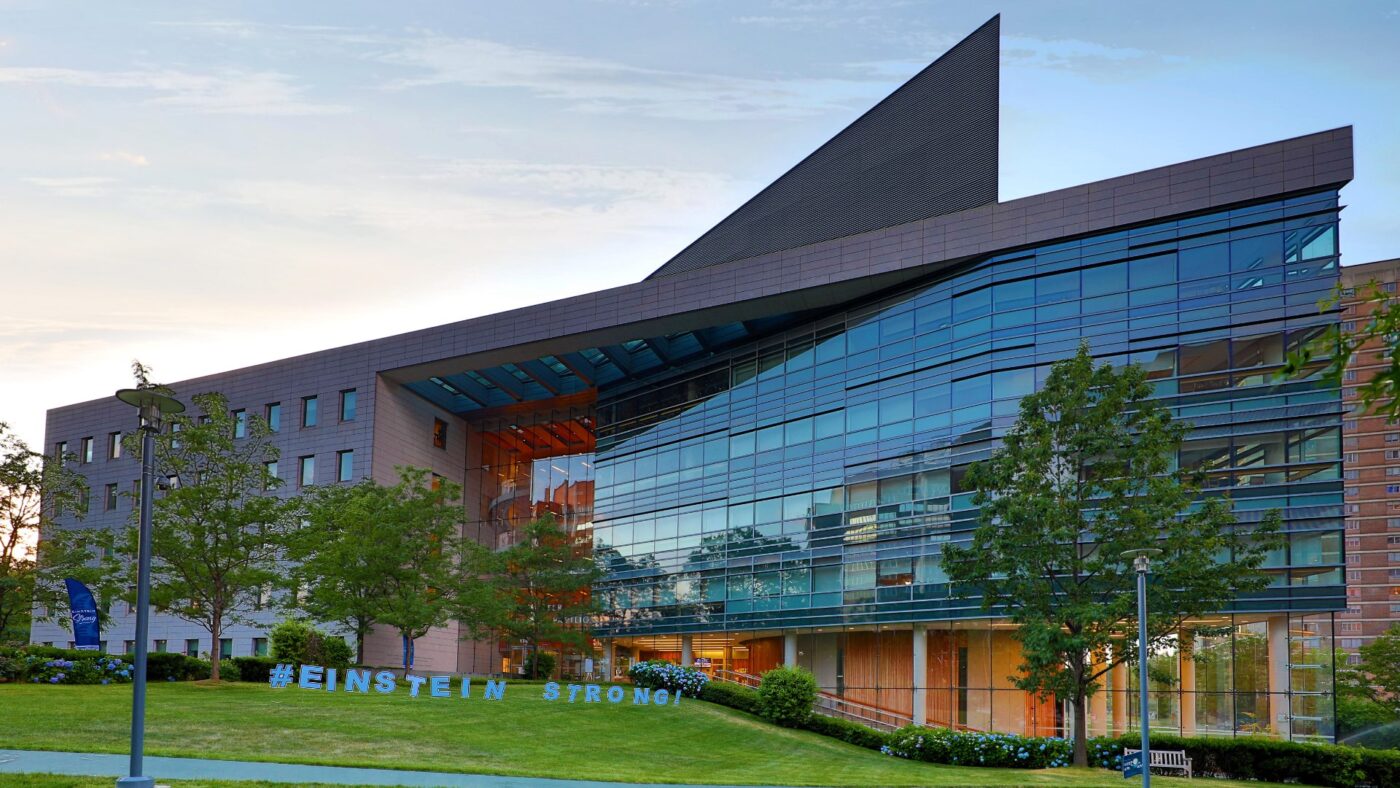Cornell Medical School, also referred to as Weill Cornell Medicine or WCMC (Weill Cornell Medical College) is 1 of 17 New York medical colleges. Weill Cornell Medicine offers one of the top MD programs in the country and provides a highly innovative curriculum. The college’s curriculum is aimed at producing leading medical practitioners through self-directed learning.
Weill Cornell Medicine’s special emphasis on progressive education, global health, and collaborative learning makes them one of the top-ranked med schools in the state of New York.
Be An Informed Applicant
Medical schools in New York, much like those across the United States, have specific requirements and guidelines. Developing an understanding of the college’s identity, programs, and selection criteria will help students focus on their med school applications and put their best foot forward when applying.
This article covers:
- Weill Cornell Medicine Rankings
- Medical Programs at Weill Cornell
- Selection Factors: What Weill Cornell Medicine Looks for in an Applicant
- Academic Requirements
- Weill Cornell Medicine Acceptance Rate, Class Profile, and More
- Weill Cornell Medicine Tuition and Cost of Attendance
- AMCAS Application and Weill Cornell Medicine Secondary Application
- Weill Cornell Medicine Secondary Application: Essay Prompts, Sample Answers, and Advice
- Medical School Admissions Consulting for New York Medical Schools
- Voluntary Healthcare Internships Abroad
Personalized Help
It is not uncommon for pre-medical students to find themselves feeling stressed out and overwhelmed by the application process. We know it can be tough applying to multiple med schools as each school has their own unique requirements and admissions process. To best aid, your chances of getting into the medical school of your dreams, consider enlisting the help of a medical school admissions consultant.
A medical school admissions consultant, like those at International Medical Aid, help guide and advise students through the application process. They offer personalized support and feedback to help you navigate the process and strengthen your application. If you want to put together a competitive application that highlights your strengths not only as a student but as a future physician, we highly recommend speaking with a consultant.
If you are like the vast majority of medical students, we know that you and your application will benefit greatly from IMA’s medical school admissions consulting.
Why Weill Cornell Medicine?
Weill Cornell Medicine along with Weill Cornell Medical Center has been committed to providing excellent patient care and scientific discovery for over 100 years.
Since 1898, Weill Cornell Medicine’s doctors and scientists have been partaking in world-class clinical care and research. The college has a powerful network of collaborators including Weill Cornell Medical Center.
The college is currently home to around 1,300 students and has approximately 1,800 academic staff members. Among these staff members is Dr. Charles Shaffer who is the Assistant Professor of Clinical Psychiatry at Weill Cornell Medicine and the Attending Psychiatrist at Weill Cornell Medical Center.
Weill Cornell Medicine Rankings
- #14 in Best Medical Schools: Research
- #45 in Best Medical Schools: Primary Care
- #12 in Psychiatry
- #11 in Radiology
- #28 Most Diverse Schools
- #57 Most Graduates Practicing in Medically Underserved Areas
- #138 Most Graduates Practicing in Primary Care Fields
- #133 Most Graduates Practicing in Rural Areas
Medical Programs at Weill Cornell Medicine
Before applying to any medical school, it is important to understand and be informed about the various med programs the college offers. Researching the various medical programs offered by Weill Cornell Medicine will help you make an informed decision about if the university is a good fit for you and help you further focus your application.
Weill Cornell offers degrees in medicine, medical science, public health, health research, and much more.
In this guide, we will focus on the main degree programs offered by the university including the standard 4-year program and dual degree options.
MD Program
The 4-year MD program offered at Weill Cornell Medicine educates students through training in the scientific principles of medicine, progressive physicianship, and excellent patient care. The program combines foundational medical education with clinical experiences. Students who graduate from Weill Cornell’s MD program can go on to many fulfilling specialties including Weill Cornell Dermatology, surgery, Pediatrics, and more.
Dual Degrees
Weill Cornell Medicine offers 2 dual degree programs which students can select in place of the standard MD program.
MD/PhD – Weill Cornell Medicine offers a joint tri-institutional MD/PhD program. This program is in conjunction with Sloan Kettering Institute and Rockefeller University. Students complete two years of medical school education, at least three years of graduate study and research toward their PhD, and one final required year of clinical medical experience.
MD/MBA – Johnson School of Management and Weill Cornell Medicine come together to provide this MD/MBA program. Students enrolled in the program complete their first 3 years of education at Weill Cornell Medicine and then join the Johnson School of Management’s MBA program for 1 year and finally return to Weill Cornell for their final year of med school.
Selection Factors: What Weill Cornell Medicine Looks for in an Applicant
What is Weill Cornell Medicine looking for in an applicant—GPA, MCAT scores, internships, and more?
The majority of colleges in the US review medical school applications using a holistic approach. A holistic approach to application review means the admissions committee views your application as a whole and tries to capture the big picture idea of who you are as a student, candidate, and individual. Most admissions committees follow the AAMC Core Competencies as their guide during the review process.
Aside from academic requirements, Weill Cornell Medicine seeks applicants who display high levels of personal integrity and whose characters are developing in a way that is conducive to the best medical practices. For more information about non-academic criteria at Weill Cornell Medicine, visit the college’s website.
Application Requirements for Weill Cornell Medicine
Similar to most colleges in New York and across the US, Weill Cornell Medicine has specific academic criteria that applicants must meet to be considered for acceptance. Failure to meet these outlined criteria will result in applicants not receiving a secondary application.
MCAT and GPA Requirements
GPA and MCAT requirements for Weill Cornell are quite stringent. The college bases these stats on the average statistics of the previous year of matriculants. Last year’s entering class of matriculants had a cumulative average GPA of 3.91 and an average MCAT score of 519.
Please keep in mind that your MCAT score must not be more than 3 years old at the time of your matriculation. If you need to retake or take your MCAT for the first time, it is best to apply for an upcoming testing date as early as possible.
Extracurricular Experiences
Weill Cornell Medicine’s admissions committee is highly interested in candidates who have meaningful extracurricular participation. Participation in extracurricular activities should demonstrate commitment and involvement through accomplishments and leadership roles.
Weill Cornell Medicine also highly encourages applicants to take part in research activities whether they are in basic science, social science, or the liberal arts.
Letters of Evaluation
The college also highly encourages potential applicants to submit letters of evaluation written by individuals who know them personally and can best portray their commitment to the field of medicine and their potential for success in the field.
Required Coursework for Weill Cornell Medicine
The following prerequisite courses are required by Weill Cornell Medicine and applicants, regardless of pathway must have completed these courses to be considered for acceptance. Applicants must receive at least a “C” or higher in each of these courses to be considered.
Basic Sciences – 2 Semesters or Equivalent in Biology, Chemistry, and Physics
Organic Chemistry – 2 Semesters of Organic Chemistry With Labs (Weill Cornell Medicine Also Accepts 1 Semester of Organic Chemistry and 1 Semester of Another Advanced Biology or Chemistry Course)
Writing-intensive Courses – 2 Semesters; 1 in Humanities or Social Sciences and 1 Focusing on English-language Literature
Laboratory Coursework – Laboratory Work in Some Instances May Be Substituted for Lab Courses
Does Weill Cornell Medicine Require the CASPer test?
The CASPer exam is an online test designed to assess the non-cognitive abilities of an applicant. This test is not required by every college, but you should thoroughly research each school’s unique requirements.
Per Weill Cornell Medicine’s list of required application materials, CASPer test results are not required as part of the college’s application process.
Weill Cornell Medicine’s Acceptance Rate and Admission Statistics
Weill Cornell Medicine has an overall acceptance rate of 1.54%, making the college quite competitive to get into.
Let’s look at some of the admission stats for the most recent class.
- Approximately 7,000 Total Applications
- 106 Students Accepted
- Average GPA of 3.91
- Average MCAT Score of 519

Weill Cornell Medicine Tuition and Cost of Attendance
Aside from tuition and fees, students hoping to attend Weill Cornell should budget for textbooks, supplies, incidentals, and living costs. Weill Cornell Medicine has provided the previous tuition costs for students M1 through M4.
Year 1:
- $62,638 Tuition and Fees
- $26,228 Living Costs
- $88,866 Total Cost
Year 2:
- $62,848 Tuition and Fees
- $28,190 Living Costs
- $91,038 Total Cost
Year 3:
- $62,848 Tuition and Fees
- $36,288 Living Costs and Exams
- $99,136 Total Cost
Year 4:
- $62,832 Tuition and Fees
- $31,374 Living Costs
- $94,206 Total Cost
AMCAS Primary Application and Weill Cornell Medicine Secondary Application
The AMCAS application is the primary standardized application used by med schools in the United States. This primary application is sent to all of the medical colleges that you wish to apply to. In general, it will take Weill Cornell Medicine 4 to 6 weeks to review your AMCAS application after they have received it.
Upon receiving and reviewing your primary application, if Weill Cornell Medicine views you as a good potential fit for their program, they will invite you to complete the college’s secondary application.
All secondary applications are specific to each university and ask more in-depth questions to help the admissions committee determine if you are a good fit for the college.
If you do not meet the academic requirements previously listed in this guide, you will not be invited to move forward and fill out the secondary application.
For those who may need further clarification about the differences between primary and secondary applications, check out this helpful article.

Weill Cornell Secondary Application: Essay Prompts, Sample Answers, and Advice
A critical part of applying to medical school includes filling out a college’s secondary application. The secondary application prompts and questions often give you additional space to further tell the admissions committee who you are as an individual, including your motivations, ambitions, character, and more. This is an opportunity for you to showcase and demonstrate what makes you a unique Weill Cornell candidate. Here are some of our top tips for submitting a well-thought-out and successful secondary application.
- Carefully read each essay prompt, ensuring that you pay close attention to all parts of the prompt or question and address them in your response.
- To support your responses you should use concrete evidence, meaning evidence from your academic, extracurricular, or professional experiences.
- Do not repeat information already provided in your AMCAS primary application. While you can further elaborate on a topic you feel you did not get to flesh out in your AMCAS application fully, do not repeat the same info as this is your chance to stand out.
- Carefully edit and proofread your essays and other application materials for errors.
- Write your responses in a clear and concise manner. Avoid filler, unnecessary sentences and words, and be sure to remain on topic.
- Consider IMA’s admission consulting service. At IMA, we understand that this can be a difficult and stressful time for students. Our consultants can help by reviewing your application and identifying areas that may need improvement.
Weill Cornell Medicine’s secondary application includes 4 essay prompts. Each prompt has a 1500-character limit.
Essay #1
Please write a brief statement giving your reasons for applying to Weill Cornell Medical College.
For this essay prompt, discuss any reasons or deciding factors that led you to apply to Weill Cornell Medicine and why you feel this is the right college to help you achieve your career goals.
Here is a sample answer:
After researching the seventeen medical colleges in New York, I felt compelled to apply to Weill Cornell Medicine as the university’s values and mission align well with my own. I also know that this college will allow me to be on the best and more direct path to achieving my career goals which include working at Weill Cornell Medical Center. Aside from aspiring to work at the Weill Cornell Medical Center, I highly admire the college’s dedication to patient-centered care and medical innovation.
Essay #2
Please describe a challenge you faced and how you addressed it.
You can tell the admissions committee about any relevant problems you have faced that will help showcase your resilience.
Here is a sample answer:
During my undergraduate education, I faced a substantial academic challenge. One of my required courses put me in an academic position that I had never been in before. I was struggling to even obtain a “C” grade in the class for nearly two semesters.
I addressed this challenge by seeking the help of a professional college tutor and reaching out to my professor to inquire about extra credit work to boost my grade. With the additional study hours and extra credit projects, I was able to boost my grade significantly and maintain this higher mark for the rest of my time taking the course.
Essay #3
If applicable, please tell us about any special circumstances related to COVID-19 that could help us understand you better. (Optional)
If you have any challenges or circumstances related to COVID-19 that you would like to tell the committee about, we highly recommend doing so. Some examples include financial challenges and academic challenges caused by the pandemic and how you addressed and recovered from them. This will show the committee your resilience.
Essay #4
If you are not attending college during the upcoming (2020-2021) academic year, what are your plans? (Optional)
If for any reason, you plan to take a gap year in your education, you should answer this prompt. Telling the committee about any gap year plans you have will show that even though you are taking a break in your education you are doing so with a purpose in mind.
Medical School Admissions Consulting
At International Medical Aid, we make it a point to provide students with thorough and highly informative content. We understand that applying for medical schools and getting accepted into a college’s MD program is a highly stressful and often overwhelming time for many.
We want to see all aspiring physicians succeed and be accepted into the university of their dreams. One of the best ways that you can help boost your chances of achieving your dreams and create a competitive med school application is by seeking the professional services of a medical school admissions consultant. Medical school admission consultants provide a wealth of knowledge for all stages of the application process, whether you need help navigating the process from start to finish or just want some guidance perfecting your secondary application essays, IMA has plenty of amazing consultants who can help you succeed.
If you are interested in learning more about the services we offer, we highly recommend you schedule a free consultation with IMA today.
Voluntary Healthcare Internships Abroad
Our pre-med shadowing study abroad programs provide aspiring physicians with amazing opportunities to travel, shadow doctors, and gain hands-on experience in a variety of clinical environments. All of the healthcare internships we offer are intensive and patient-facing.
These internships extend far beyond helping you create a more compelling and competitive application for Weill Cornell Medicine or other medical schools. IMA’s program seeks to serve various struggling populations in locations such as East Africa, South America, and the Caribbean. Through these programs, you can develop and hone your doctoring skills, serve the medically underserved, gain insight, broaden your perspectives, and make lifelong memories. Don’t just take our word for it though, read through our alumni testimonials and hear what those who have been a part of these internships have to say.
There is a lot involved in our internships and we recommend that those who are interested take time to research and learn about all of the programs we offer by checking out our website.
Good Luck!
From all of us at International Medical Aid, we sincerely want to wish you the best of luck and success in all of your future medical career endeavors. When filling out your med school applications, remember to always take your time, be strategic, and never hesitate to ask for and enlist help if you feel that you may need additional guidance.
If you want to know more about other top New York medical colleges or med schools across the US or are curious to know “how Weill Cornell stacks up to other medical schools near me”, check out our other ultimate school guides.
- University of Rochester Medical School
- Icahn School of Medicine at Mount Sinai
- Renaissance School of Medicine at Stony Brook University
- Albert Einstein College of Medicine
- Ohio University Heritage College of Osteopathic Medicine
- Northeast Ohio Medical University (NEOMED)
- University of Cincinnati College of Medicine
- University of Toledo College of Medicine
- Wright State University Boonshoft School of Medicine
- Ohio State University College of Medicine
- Rowan University School of Osteopathic Medicine
- Hackensack Meridian School of Medicine (HMSOM)
- Rutgers New Jersey Medical School (NJMS)
- Rutgers Robert Wood Johnson Medical School
- Cooper Medical School of Rowan University (CMSRU)
- A.T. Still University Kirksville College of Osteopathic Medicine
- Saint Louis University School of Medicine
- University of Missouri Medical School
- Kansas City University (KCU)
- UMKC School of Medicine
- New York Medical College
- University of Pittsburgh School of Medicine
- University of Wisconsin Medical School
- VCU School of Medicine
- University of Maryland School of Medicine
- Case Western Medical School
- University of North Carolina Medical School
- University of Florida Medical School
- Emory University School of Medicine
- Boston University College of Medicine
- California University of Science and Medicine
- UC San Diego Medical School
- California Northstate University College of Medicine
- Touro University of California
- CHSU College of Osteopathic Medicine
- UC Davis School of Medicine
- Harvard Medical School
- UC Riverside School of Medicine
- USC Keck School of Medicine
- UT Southwestern Medical School
- Long School of Medicine at UT Health San Antonio
- University of the Incarnate Word School of Osteopathic Medicine
- UT Austin’s Dell Medical School
- UTMB School of Medicine
- McGovern Medical School at UT Health
- Johns Hopkins School of Medicine
- McGovern Medical School at UT Health
- The University of Texas Rio Grande Valley School of Medicine
- UNT Texas College of Osteopathic Medicine
- University of Houston College of Medicine
- Texas A&M College of Medicine
- Johns Hopkins Medical School
- Baylor College of Medicine
- George Washington University School of Medicine
- Vanderbilt University School of Medicine
- St. George’s University School of Medicine
- Lake Erie College of Osteopathic Medicine (in Pennsylvania)
- Sidney Kimmel Medical College at Thomas Jefferson University
- Wake Forest University School of Medicine
- Western University of Health Sciences (in California)
- Drexel University College of Medicine
- Stritch School of Medicine at Loyola University Chicago
- Georgetown University School of Medicine
- Yale School of Medicine
- Perelman School of Medicine
- UCLA Medical School
- NYU Medical School
- Washington University School of Medicine
- Brown Medical School










